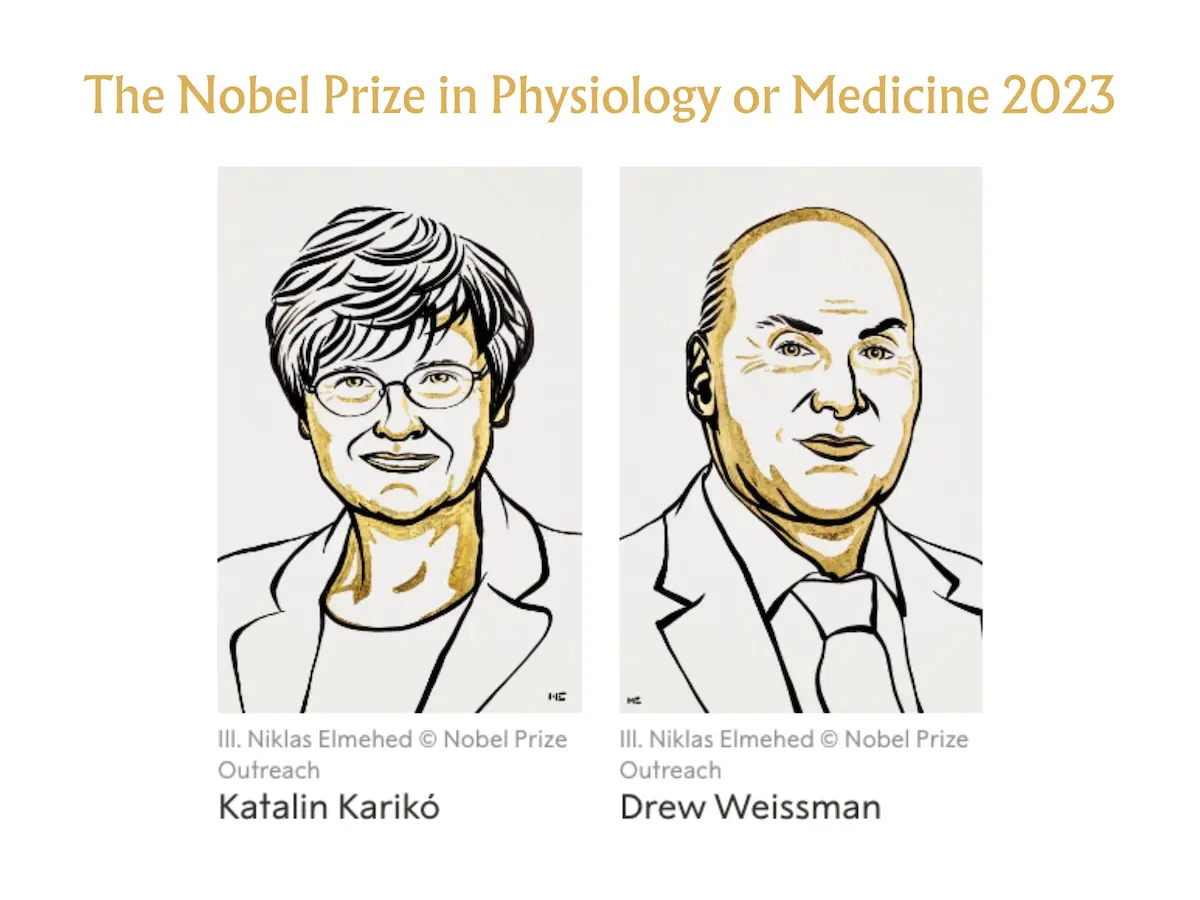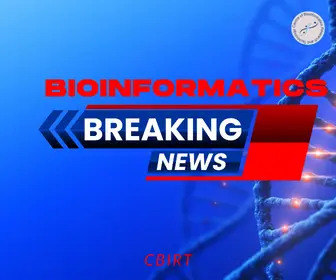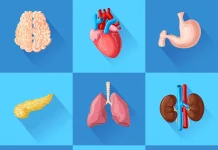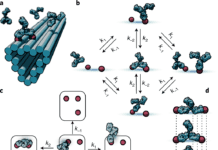The 2023 Nobel Prize in Physiology or Medicine has been jointly awarded to Katalin Karikó and Drew Weissman for their outstanding discoveries concerning nucleoside base modifications that helped in the development of highly potent mRNA vaccines against COVID-19. This tremendous achievement has not only transformed our understanding of how mRNA interacts with our immune system but has also played a pivotal role in the swift development of vaccines during one of the most prominent global health crises in modern history.
Evolution of Vaccines
Vaccines have long been an important part of disease prevention, from early versions based on weakened or destroyed viruses to more modern developments based on particular viral components. Vaccines against polio, measles, and yellow fever are examples. The effect of such advances is exemplified by Max Theiler’s 1951 Nobel Prize for the yellow fever vaccine.
Molecular biology advancements in recent decades have enabled vaccinations based on particular virus components. This resulted in vaccinations against hepatitis B and human papillomavirus, as well as the creation of vector-based vaccines against viruses such as Ebola. However, these methods often required resource-intensive large-scale cell cultures, limiting rapid responses to outbreaks.
The Promise of mRNA Vaccines
During the 1980s, the introduction of in vitro transcription revolutionized the production of messenger RNA (mRNA) without cell culture. This marked a significant leap forward in molecular biology applications. The idea of using mRNA for vaccines and therapies emerged, but challenges such as mRNA instability and delivery complications hindered progress.
The Unwavering Dedication of Katalin Karikó
Undeterred by obstacles, Hungarian biochemist Katalin Karikó, while at the University of Pennsylvania in the early 1990s, remained steadfast in her pursuit of mRNA as a therapeutic tool. Her collaboration with immunologist Drew Weissman, who was intrigued by dendritic cells, proved pivotal. Together, they delved into how different RNA types interacted with the immune system.
The Game-Changing Discovery
Karikó and Weissman made a crucial observation: dendritic cells identified in vitro transcribed mRNA as foreign, triggering an inflammatory response. This raised a fundamental question: why did mammalian cell-derived mRNA not evoke the same reaction? Their investigation led to a breakthrough realization – chemical modifications in the RNA bases played a crucial role. By introducing unique base modifications, they significantly reduced inflammatory responses, opening up new possibilities for mRNA therapy.
From Discovery to Pandemic Response
Subsequent studies in 2008 and 2010 demonstrated that base modifications in mRNA not only decreased inflammation but also enhanced protein production. These findings removed critical barriers to clinical applications of mRNA.
mRNA Vaccines: Realizing their Potential
The potential of mRNA technology began to gain traction, leading to the development of base-modified mRNA vaccines against the Zika virus and MERS-CoV. When the COVID-19 pandemic hit, the race was on. Within record time, two base-modified mRNA vaccines targeting the SARS-CoV-2 surface protein were created. With a reported protective efficacy of around 95%, these vaccines were approved by December 2020.
The unprecedented speed and adaptability of mRNA vaccine development lay the foundation for future breakthroughs. This platform not only holds promise for vaccines against other infectious diseases but also for delivering therapeutic proteins and treating certain types of cancer.
Conclusion
The 2023 Nobel Prize in Physiology or Medicine rightfully recognizes the extraordinary contributions of Katalin Karikó and Drew Weissman. Their pioneering work in understanding nucleoside base modifications in mRNA has not only revolutionized vaccine development but has also been instrumental in our fight against the COVID-19 pandemic. Their legacy will continue to shape the future of medicine and inspire generations of scientists to come.
Pioneering Publications
Karikó, K., Buckstein, M., Ni, H. and Weissman, D. Suppression of RNA Recognition by Toll-like Receptors: The impact of nucleoside modification and the evolutionary origin of RNA. Immunity 23, 165–175 (2005).
Karikó, K., Muramatsu, H., Welsh, F.A., Ludwig, J., Kato, H., Akira, S. and Weissman, D. Incorporation of pseudouridine into mRNA yields superior nonimmunogenic vector with increased translational capacity and biological stability. Mol Ther 16, 1833–1840 (2008).
Anderson, B.R., Muramatsu, H., Nallagatla, S.R., Bevilacqua, P.C., Sansing, L.H., Weissman, D. and Karikó, K. Incorporation of pseudouridine into mRNA enhances translation by diminishing PKR activation. Nucleic Acids Res. 38, 5884–5892 (2010).
Story Source: Reference Article
Learn More:
Dr. Tamanna Anwar is a Scientist and Co-founder of the Centre of Bioinformatics Research and Technology (CBIRT). She is a passionate bioinformatics scientist and a visionary entrepreneur. Dr. Tamanna has worked as a Young Scientist at Jawaharlal Nehru University, New Delhi. She has also worked as a Postdoctoral Fellow at the University of Saskatchewan, Canada. She has several scientific research publications in high-impact research journals. Her latest endeavor is the development of a platform that acts as a one-stop solution for all bioinformatics related information as well as developing a bioinformatics news portal to report cutting-edge bioinformatics breakthroughs.












